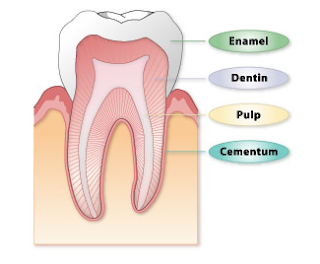Flossing
Flossing
daily removes plaque and other debris that brushing alone does not reach. By
flossing your teeth daily, you increase the chances of keeping your teeth for a
lifetime and reduce your risk of developing gum problems. It can even help you
get rid of bad breath. The benefits of flossing are almost endless, really, and
anyone who isn't flossing is missing out.
Types of floss
There
are two types of floss from which to choose:
·
Nylon
(or multifilament) floss
·
PTFE
(monofilament) floss
Nylon
floss is available waxed and unwaxed, and
in a variety of flavors. Because this
type of floss is composed of many strands of nylon, it may sometimes tear or
shred, especially between teeth with tight contact points. While more
expensive, single filament (PTFE) floss slides easily between teeth, even those
with tight spaces between teeth, and is virtually shred-resistant. When used
properly, both types of floss are excellent at removing plaque and debris.
Steps to floss
Use
this step-by-step guide to find out how to properly floss your teeth:
· Break off about 18 inches of floss and
wind most of it around one of your middle fingers. Wind the remaining floss
around the same finger of the opposite hand. This finger will take up the floss
as it becomes dirty.
·
Hold the floss tightly between your
thumbs and forefingers.
·
Guide the floss between your teeth
using a gentle rubbing motion. Never snap the floss into the gums.
·
When the floss reaches the gum line,
curve it into a C shape against one tooth. Gently slide it into the space
between the gum and the tooth.
· Hold the floss tightly against the
tooth. Gently rub the side of the tooth, moving the floss away from the gum
with up and down motions. Repeat this method on the rest of your teeth. Don’t
forget the back side of your last tooth.
Once
you’re finished, throw the floss away. A used piece of floss won’t be as
effective and could leave bacteria behind in your mouth.
Benefits of Flossing
Flossing is a vital part of your
dental care regime and if you're one of those people who find it tough to
remember flossing, then it's high time you make it a habit. Flossing is
essential as in the long run it helps fight a lot of oral problems. Here are
some indisputable benefits of flossing:
· Flossing prevents
Halitosis- a symptom in which the breath releases a noticeably bad odour.
· Flossing keeps the gums
healthy. It wards off gum diseases and gingivitis by eliminating the culprit-
bacteria that cling around the roots of the teeth and irritate the gums.
· Flossing can assist
fluoride from the toothpaste to reach between your teeth easily.
· Plaque can build up in
arteries & block blood flow. Flossing aids in releasing plaque from the
teeth, hence it has been suggested that it plays a significant role in
decreasing chances of heart disease.
Floss
your teeth at least once every day. Dentists suggest flossing for two to three
minutes, but even 60 seconds of flossing daily can significantly improve your
gum health. Most people floss before bed. If you know you've had a meal that
led you to have more food stuck in your teeth than usual, then you can floss
earlier too, to get out the stray particles of food. That being said, you don't
want to overdo the flossing, either, or you may damage
your gums. Just once a day should be the perfect amount.








Comments
Post a Comment